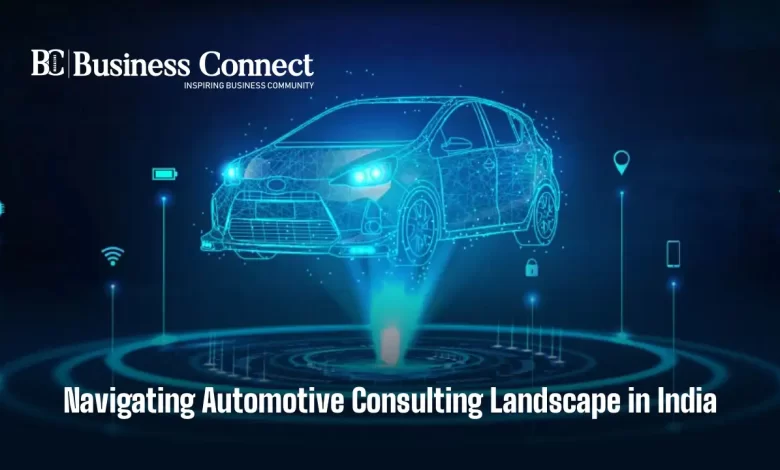Navigating Automotive Consulting Landscape In India

Navigating Automotive Consulting Landscape in India
India’s automotive ecosystem is on the verge of revolution. The proliferation of electric vehicles (EVs), increasing environmental regulations and the transformation to digital automotive processes idealize a complexity in this dynamic sector; local and global companies are looking for expertise. Automotive consulting in India quickly became a necessity; this service enables solution providers, manufacturers, suppliers and startups as well as other government agencies to effectively deal with hurdles and look for new opportunities.
In this blog, we will look at the automotive consulting landscape in India today, what trends drive this space, where consultants face challenges and opportunities that one could tap into to make a career/ business for themselves here.
Make In India Journey and Automotive Consulting in India
It has been a decade since the automotive consulting space in India gained momentum. With a huge population and fast-growing middle class, India is the fifth largest automobile market in the world with a rising logistical basics and regulatory structure. In turn, the need for expert guidance on everything from strategies to enter new markets and optimize global supply chains to emerging technologies and government regulations has surged.
Consultants help automotive companies develop growth strategies, localize products with market needs and drive efficiencies in operations. They also assist stakeholders in making decisions about investments, technology adoption, and product innovation.
Several trends which are shaping the automotive industry
- In India, there are policies and incentives introduced by government to encourage the adoption of electric vehicles. There are schemes namely, the faster adoption and manufacturing of hybrid and electric vehicles (FAME) scheme. Consultants who are specialised in electric cycles can help the automotive industry to overcome challenges.
- The adoption of digital technologies such as virtual assistance, machine learning and Internet of Things have embraced in the automotive sector. Consultants can guide these companies on implementation of such technologies in order to stay relevant and competitive in the business market.
- India is shifting towards sustainability goals. It focuses on reducing carbon uses, enhancing the efficiency of fuel and sustainable sourcing of materials. Consultants have an expertise in sustainability and green mobility can help these companies to navigate the environmental regulations and innovations and fuel technology.
- Indian automotive sector is highly regulated. Consultants who have a specialisation in regulatory affairs can play a crucial role and helping the automotive industries understand the evolving regulatory landscape and other legal consideration.
What are the challenges in the Indian automotive consulting sector?
- The automotive market is quite diverse. There are various variations in terms of needs and preference of customers and the purchasing potential of a country. As a consultant, you should understand the regional market, behaviour of customer and other regulatory frameworks.
- The Indian market is also price sensitive market where automotive industry often suffers to keep their price lower while maintaining the quality of the product. As a consultant, you should provide the solution which will help companies to optimise their supply chains and reduce manufacturing cost which ultimately enhances the operation efficiency of a company.
- Infrastructure remains a challenge in the Indian market at the logistics and distribution level. There is lack of adequate charging infrastructure electric vehicles. Automotive consultant must access the feasibility of infrastructure in local market.
Conclusion
The automotive consulting sector in India as both diverse and challenging. It is an evolving sector but there is need for more expertise. Automotive consultants have the power to shape the future of mobility, sustainability and technological innovations.





